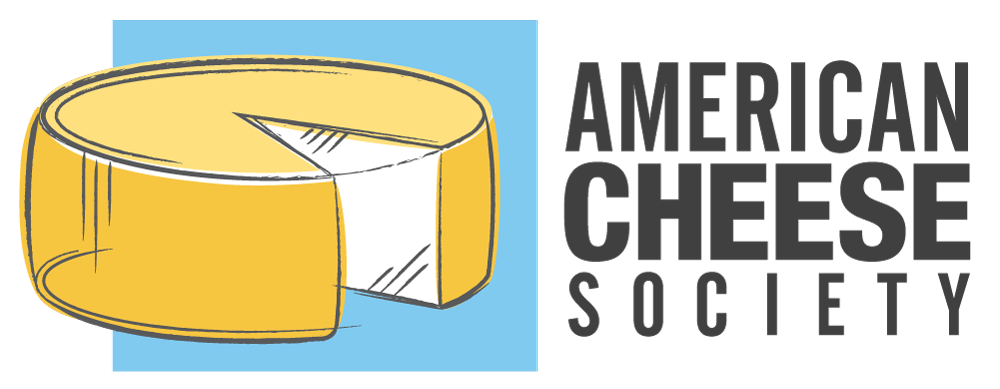With the growing popularity of Community Supported Agriculture (CSAs) in the United States, many cheesemakers are partnering with local farms to offer a supplemental cheese CSA.
Each CSA works a little differently, but the basics are that farmers offer “shares” to the public. Those who are interested purchase a share prior to the season’s start and in return receive a box of local produce each week throughout the farming season.
Dreamfarm, a producer of goat cheese in Cross Plains, Wisconsin, has partnered with Vermont Valley Community Farms’ CSA since 2003. “I was working for them at the time on the vegetable farm,” says Diana Murphy, owner of Dreamfarm. The owners of Vermont Valley Community Farms approached Diana and asked if she would be interested in having her goat cheese as a supplement to their vegetable share. Since her cheese was only for personal consumption at the time, Diana spent 2 years pursuing her cheesemaker’s license before the partnership began.
Dreamfarm does a 4 week spring delivery CSA with 2 deliveries per CSA member. Shareholders receive their cheese share during weeks 1 and 3 or weeks 2 and 4. In the summer, Dreamfarm has a 20 week CSA with 10 deliveries per each member. This year, Dreamfarm has around 120-140 shareholders. Diana estimates that approximately 20% of their cheese sales comes from CSA shares.
Dreamfarm’s CSA members get to select one of two options for their share. The “Select Pack” share receives one cheese for the entire season, while the “Variety Pack” share provides a variety of cheeses during the season. Diana explained that some people prefer a plain goat cheese each week so they can cook with it, while others want to experience the full variety of cheeses that Dreamfarm makes, such as feta or a special olive oil-marinated cheese.
There are many benefits to providing CSA shares to your community. “It’s nice to have that pre-paid share up front before the season begins, so you have a little working capital,” says Diana. “You also have contact with that member. It’s nice because the customers are comfortable enough to email or call about questions on the farm. You get good feedback from those kinds of customers.”
There are also some difficulties with CSAs. Diana’s biggest concern is “not having the control once my cheese has left the farm.” Vermont Valley Community Farm delivers the cheese for Dreamfarm to each CSA pickup site, where the coolers filled with cheese and ice packs sit until the shares are picked up.
Diana has some recommendations for cheesemakers hoping to start a partnership or start their own CSA. “You have to be well organized and provide straightforward information, especially for people who have never done a CSA before.” It’s also important to be in communication throughout the season to let customers know why they received a particular cheese and not another cheese, and keep them updated on what’s happening at the farm. Dreamfarm also does an end of season survey every year, helping them make decisions for future CSAs, and making their CSA members feel they’re part of the decisions being made.
MouCo Cheese Company in Fort Collins, Colorado, was part of a cheese CSA partnership during the past two years with Grant Family Farms, one of the largest CSA farms in the country. While Grant Family Farms declared bankruptcy this winter, MouCo Cheese is happy with the overall experience and the marketing opportunities that were presented during the CSA partnership.
“The CSA program matches our philosophy,” says co-owner Robert Poland. “It’s an advertisement of MouCo Cheese Company being a community-supported company.”
Another benefit that Poland found with CSAs was the ease in which customers could get their cheese. “If your customers can get tomatoes and cheese at once, they’ll be more inclined to do so,” says Robert. This is especially true with CSA shares that are picked up at farmer’s markets. “If they come to get their CSA share, they will probably get something else at the farmer’s market. This helps foster community,” says Robert.
Robert voices the same concerns as Diana with the handling of cheese after it has left their facility. A positive spin on this is that, since Robert knows every person through the distribution channel of a CSA, “the transparency is more communal and I know every entity because of traceability requirements.” In addition, these people all know Robert, so they are taking care of the cheese and becoming marketers for MouCo Cheese. “They are both customers and marketers and distributors,” says Robert.
While Robert is unsure if they’ll partner with another CSA, he looks forward to seeing what the food future of Fort Collins is. With the largest CSA in the country now bankrupt, there is the opportunity for smaller farmers to find their niche, create relationships with other local food producers, and grow a stronger local food movement. As Grant Farms’ void is filled, perhaps MouCo Cheese will partner with a CSA program again.
For more details on Dreamfarm’s CSA, please go to www.dreamfarm.biz. For details on MouCo Cheese, please go to www.mouco.com.
